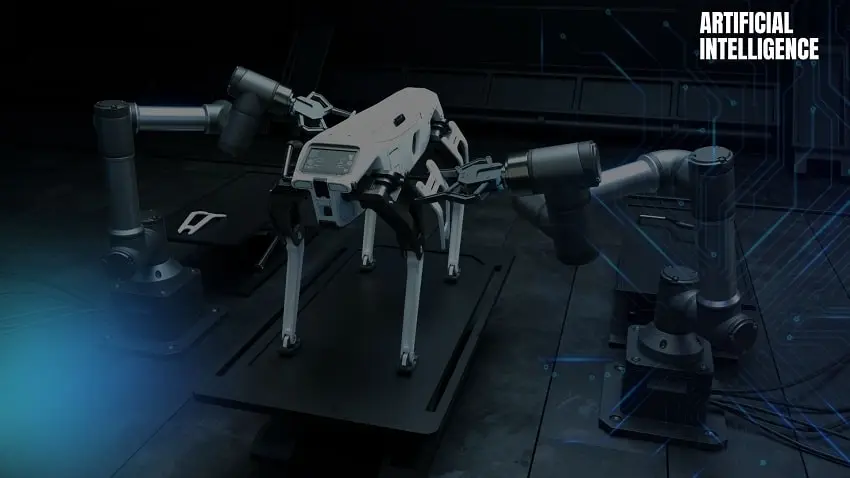
Table of Contents
In the blink of an eye, artificial intelligence (AI) has transitioned from a futuristic concept to an integral part of our lives. This technology is revolutionizing industries and daily activities, making it imperative for tech enthusiasts, business owners, and developers to understand its profound impact. In this blog, we’ll explore the evolution of AI, its applications, and why integrating AI into your strategy could be the game-changer you’ve been waiting for.
Introduction to Artificial Intelligence
Artificial Intelligence, commonly known as AI, refers to the simulation of human intelligence in machines. These intelligent systems are designed to think, learn, and adapt like humans. The significance of AI in today’s world cannot be overstated. From enhancing customer service to optimizing business operations, AI is everywhere.
In this blog, we’ll provide a comprehensive overview of AI. You’ll learn about its historical evolution, how it’s being applied in various industries, and what the future holds. Additionally, we’ll offer practical tips for incorporating AI into your business strategy.
The Evolution of AI

The concept of AI isn’t new. It dates back to ancient myths and legends about artificial beings endowed with intelligence. However, the real strides began in the mid-20th century.
In 1956, the term “Artificial Intelligence” was coined during the Dartmouth Conference, which is widely considered the birthplace of AI. The 1960s and 70s saw the development of early AI systems such as ELIZA, a natural language processing computer program.
Fast forward to the 21st century, AI has evolved exponentially. The advent of machine learning, neural networks, and big data has propelled AI to unprecedented heights. Today, AI systems can outperform humans in specific tasks, showcasing the incredible progress we’ve made.
AI in Everyday Life
AI has seamlessly integrated into our daily lives, often without us even realizing it. Take, for instance, your morning routine. When you ask Alexa for the weather forecast or use Google Maps to find the quickest route to work, you’re interacting with AI.
In healthcare, AI-powered diagnostic tools help doctors identify diseases with remarkable accuracy. Financial institutions use AI algorithms to detect fraudulent activities in real time. Even the entertainment industry leverages AI, with platforms like Netflix recommending shows based on your viewing history.
These examples merely scratch the surface. AI’s applications are vast and varied, making it a crucial component of modern life.
AI and Business
Businesses are leveraging AI to gain a competitive edge. AI transforms business operations by automating repetitive tasks, thereby increasing efficiency. For example, chatbots handle customer inquiries, allowing human agents to focus on more complex issues.
AI also plays a pivotal role in decision-making. Through data analysis, AI provides insights that inform business strategies. Predictive analytics, powered by AI, helps companies anticipate market trends and consumer behavior.
Customer experiences are enhanced through personalized recommendations and targeted marketing campaigns. By understanding customer preferences, businesses can deliver tailored experiences that drive loyalty and engagement.
AI Technology Explained
To fully appreciate AI, it’s essential to understand the underlying technologies. Let’s start with machine learning. This subset of AI involves training algorithms to learn from data and make predictions or decisions without explicit programming.
Neural networks are another critical component. Modeled after the human brain, these networks consist of interconnected nodes that process information. Deep learning, a subset of neural networks, enables machines to recognize patterns and make decisions with minimal human intervention.
Natural Language Processing (NLP) allows machines to understand, interpret, and generate human language. NLP powers applications like chatbots, voice assistants, and sentiment analysis tools.
The Future of AI

The future of AI is incredibly promising. Experts predict that AI will continue to evolve, becoming more sophisticated and integrated into various aspects of life.
One area of significant advancement is AI ethics. As AI systems become more autonomous, ethical considerations will play a crucial role in their development. Ensuring AI operates within ethical boundaries will be paramount.
AI is expected to create new job opportunities while transforming existing roles. Professionals will need to adapt and acquire new skills to thrive in an AI-driven world. Continuous learning and innovation will be key to staying relevant.
The societal impact of AI will be profound. From healthcare innovations to environmental solutions, AI has the potential to address some of the world’s most pressing challenges.
How to Incorporate AI

Integrating AI into your business strategy can seem daunting, but it doesn’t have to be. Start by identifying areas where AI can add value. Look for repetitive tasks that can be automated or processes that could benefit from data-driven insights.
Next, invest in AI tools and technologies that align with your business goals. Platforms like TensorFlow and PyTorch offer robust frameworks for developing AI applications. Consider partnering with AI experts to guide you through the integration process.
Training and upskilling your team is crucial. Equip your employees with the knowledge and skills needed to work alongside AI. Encourage a culture of innovation and continuous learning.
Finally, monitor and evaluate the impact of AI on your business. Use metrics to measure performance and make data-driven adjustments. Stay informed about the latest AI trends and advancements to ensure your strategy remains relevant.
Conclusion
Artificial Intelligence is not just a technological trend; it’s a transformative force reshaping industries and society. Understanding AI and its applications is crucial for tech enthusiasts, business owners, and developers. By leveraging AI, you can enhance efficiency, improve decision-making, and deliver exceptional customer experiences.
The potential of AI is boundless, and the future looks bright. As we continue to innovate and integrate AI into our lives, ethical considerations and continuous learning will be essential. Stay curious, stay informed, and embrace the possibilities that AI offers.
Ready to take the next step? Explore how AI can revolutionize your business strategy today.


